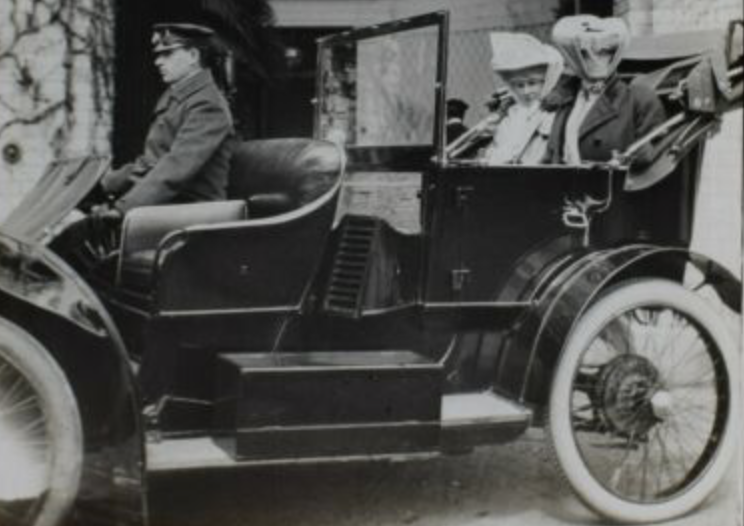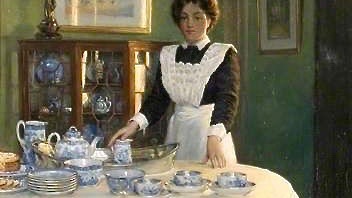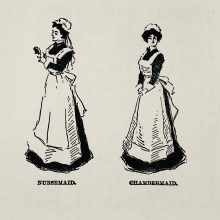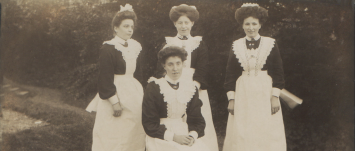It really is amazing just how much staff was needed to run a country home. We’re finally leaving the main house and now we’re headed outside.
Coachman/ Chauffeur
The coachman is in charge of the carriages and drives the family about. In a large household the first Coachman drove two horse teams and the second coachman drove one horse carriages.
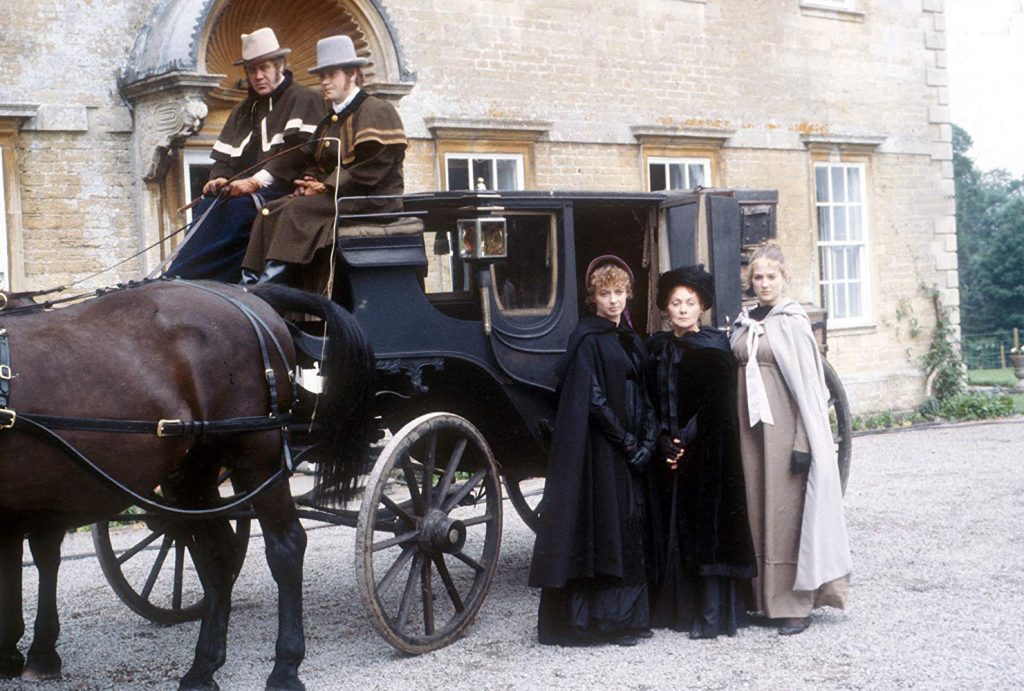
As time went on, the coachman turned into the Chauffeur, who had all the same duties, but looked after the car saw that it was maintained and repaired. In a large house you might have a head Chauffeur and several additional drivers. You might have a Coachman and a Chauffeur. Coachmen/Chauffeurs were considered Senior Staff.
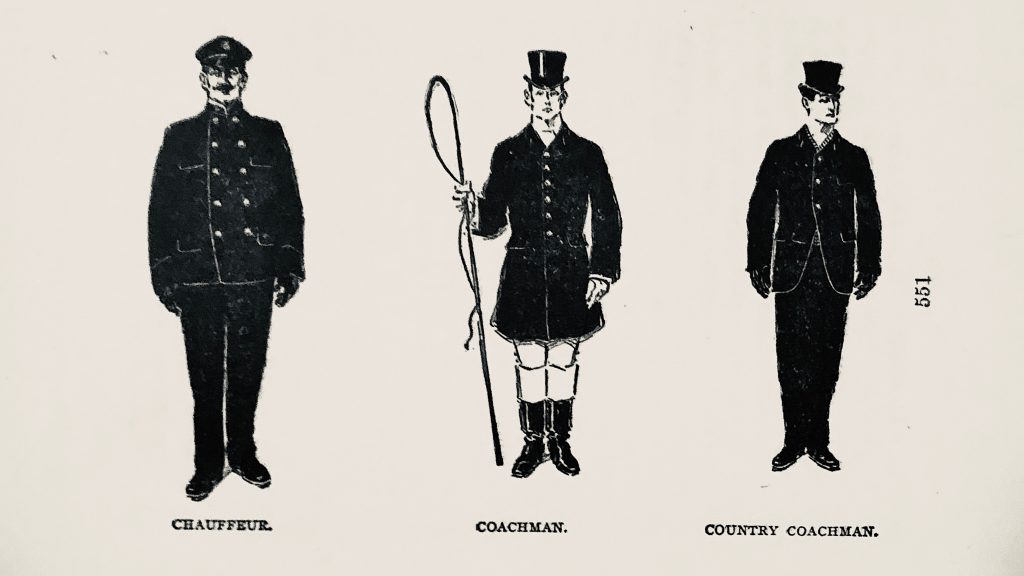
Head Groom / Stable Master
Responsible for the stables and the horses. A good stablemaster was king of his domain and given a good deal of respect. Considered Upper Staff though he did not live in the house, the Head Groom might be called upon to breed horses, perform minor vet duties and horse training.

Groom
Assisted the coachman or Head Groom and helped take care of the horses. Often cared for the leather in the stables such as Saddles, etc.
Stable Boy
Assisted the coachman and the grooms. Mucked stalls, etc. These boys could be as young as 10.
Head Gardener
The Head Gardener handled the management of the estate’s gardens, which could include, formal gardens, kitchen gardens, green houses, flower gardens, cutting gardens, water features, mushroom enclosures and rhubarb houses. This could even encompass tennis lawns and croquet courts. The head gardener was upper staff and could have a very large contingent of people below him.
After watching a Victorian Kitchen Garden, I thought the head gardener would bring the best vegetables to the cook each day, but this was often not the case. Cooks would send down requests for vegetables to be used in dishes and the head gardener might advise the cook on vegetables that were ripe and needed to be eaten so that they could be incorporated into the menus, but likely one of his underlings would have delivered the produce to the big house on a grand estate.
Grounds Keepers
Grounds Keepers are responsible for carrying out the head gardeners plans. They plant trees, vegetables, trim topiaries and cut the grass.
Game Keeper
Responsible for maintaining the birds and wild game on the estate. Depending on the location this could mean a pheasant or duck population for bird hunts or deer and venison.
Game Keeper’s Assistant
Assisted the Game Keeper and trained under him.
Milk Maids
Large country houses often had a dairy and therefore milkmaids to milk the cows. Milk maids also made cheese and other dairy products.
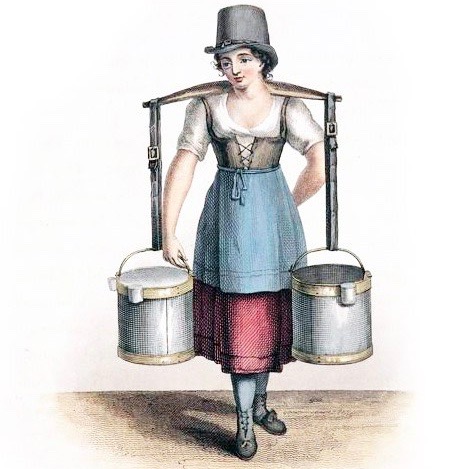
Gate Keeper
Guarded the entrance to the house and lived in a small house attached to the gate. Generally, a lowly and symbolic position. Sometimes this was given to an old member of staff, so they would have a place to live after they were no longer useful in the main house.
Loonie in the bushes
Starting in the Regency, noble houses would hire a man to live in a grotto or cave on the estate. They were generally awful positions. Though some houses had a suspiciously handsome loonie hanging about shirtless in the grotto. One wonders just what “back to nature” pursuits the lady, (or gent) of the house had in mind when hiring him.
Well, that about wraps up the country house. Did I miss anything, please let me know! Until next time, much love, Cheri
